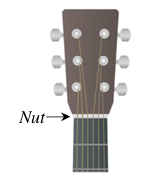ADDING AND SUBTRACTING MIXED FRACTIONS
Subscribe to our ▶️ YouTube channel 🔴 for the latest videos, updates, and tips.
Adding and subtraction can be done in two different ways.
(ii) Converting into improper fractions and simplify.
Regrouping Method
Problem 1 :
1 2/3 + 3 1/4
Solution :
= 1 2/3 + 3 1/4
= 1 + 2/3 + 3 + 1/4
Grouping the integers part and fractional part.
= (1 + 3) + 2/3 + 1/4
= 4 + (2/3 + 1/4)
By taking the least common multiple, we get
= 4 + (8 + 3)/12
= 4 + 11/12
= 4 11/12
Problem 2 :
3 3/4 - 1 1/2
Solution :
= 3 3/4 - 1 1/2
= 3 + 3/4 - 1 + 1/2
By grouping,
= (3 – 1) + (3/4 – 1/2)
= 2 + (3/4 – 1/2)
Here the two proper fractions denominators are not the same.
So, we take the least common multiple of 4 and 2.
= 2 + (3 – 2)/4
= 2 + 1/4
= 2 1/4
To see problems on converting into mixed fractions and simplify, click the link given below.
Adding and Subtracting Mixed Fractions with Unlike Denominators
Problem 3 :
4 1/3 + 2 1/6
Solution :
= 4 + 1/3 + 2 + 1/6
= (4 + 2) (1/3 + 1/6)
By taking the least common multiple, we get
= 6 + (2 + 1)/6
= 6 + 3/6
= 6 + 1/2
= 6 1/2
Problem 4 :
2 2/3 - 5 5/6
Solution :
= 2 + 2/3 - 5 - 5/6
= (2 - 5) + 2/3 - 5/6
= -3 + [(4 - 5)/6]
= -3 - 1/6
= -3 1/6
Problem 5 :
-2 1/4 + 3 1/8
Solution :
= -2 + 1/4 + 3 + 1/8
=(-2 + 3) (1/4 + 1/8)
By taking the least common multiple, we get
= 1 [1(2) + 1(1)]/8
= 1 (2 + 1)/8
= 1 3/8
Problem 6 :
4 1/5 - 2 1/6
Solution :
= 4 + 1/5 - 2 - 1/6
= (4 – 2) + (1/5 – 1/6)
By taking the least common multiple, we get
= 2 + [1(6) – 1(5)]/30
= 2 + (6 – 5)/30
= 2 + 1/30
= 2 1/30
Problem 7 :
2 1/3 + 1 1/6
Solution :
= 2 + 1/3 + 1 + 1/6
= (2 + 1) + (1/3 + 1/6)
By taking the least common multiple, we get
= 3 + [1(2) + 1(1)]/6
= 3 + [(2 + 1)/6]
= 3 + 1/2
= 3 1/2
Problem 8 :
1 1/2 + 4 2/3
Solution :
= 1 + 1/2 + 4 + 2/3
= (1 + 4) + (1/2 + 2/3)
By taking the least common multiple, we get
= 5 [1(3) + 2(2)]/6
= 5 (3 + 4)/6
= 5 + 7/6
= 5 + 1 + 1/6
= 6 1/6
Problem 9 :
3 1/3 - 1 1/2
Solution :
= 3 + 1/3 - 1 + 1/2
= (3 - 1) + (1/3 – 1/2)
By taking the least common multiple, we get
= 2 + [1(2) – 1(3)]/6
= 2 + (2 – 3)/6
= 2 + (-1/6)
= 1 + 1 - 1/6
= 1 + 6/6 - 1/6
= 1 + 5/6
= 1 5/6
Problem 10 :
4 3/7 - 2 1/3
Solution :
= 4 + 3/7 - 2 + 1/3
= (4 – 2) + (3/7 – 1/3)
By taking the least common multiple, we get
= 2 + [3(3) – 1(7)]/21
= 2 + (9 – 7)/21
= 2 + 2/21
= 2 2/21
Problem 11 :
A gingerbread cookie recipe calls for 3/4 cup of sugar, 2 cups of flour, 1/3 cup of dark molasses, 1/2 cup of water and 2/3 cup of shortening. Determine the combined amount, in cups, of these ingredients.
Express your answer as a mixed number.
Solution :
Quantity of sugar = 3/4 cups
Quantity of flour = 2 cups
Quantity of dark molasses = 1/3 cups
Quantity of water = 1/2 cups
Quantity of shortening = 2/3 cups
Quantity of these ingredients = 3/4 + 2 + 1/3 + 1/2 + 2/3
LCM of (2, 3, 4) = 12
= 2 + (9 + 4 + 6 + 8) / 12
= 2 + 27/12
= (24 + 27)/12
= 51/12
= 4 3/4 cups
Problem 12 :
On a steel-string acoustic guitar, the material that supports the strings at the end closest to the headstock is called the nut. The width of the nut typically ranges between 11 1/16 inches and 1 3/4 inches. Determine the difference between these two nut widths.

Solution :
The width of the nut typically ranges between 11 1/16 inches and 1 3/4 inches
Difference = 11 1/16 - 1 3/4
= (11 - 3) + (1/16 - 3/4)
= 8 + (1 - 12)/16
= 8 + (-11/16)
= 7 + 1 - 11/16
= 7 + (16 - 11)/16
= 7 5/16
So, the required difference is 7 5/16 inches.
Subscribe to our ▶️ YouTube channel 🔴 for the latest videos, updates, and tips.
Recent Articles
-
Finding Range of Values Inequality Problems
May 21, 24 08:51 PM
Finding Range of Values Inequality Problems -
Solving Two Step Inequality Word Problems
May 21, 24 08:51 AM
Solving Two Step Inequality Word Problems -
Exponential Function Context and Data Modeling
May 20, 24 10:45 PM
Exponential Function Context and Data Modeling